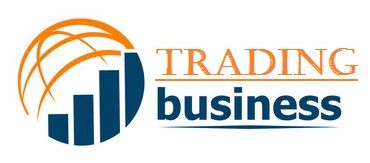The balance sheet is a crucial component of the financial statement since it shows what a firm owns at any given time as well as vital information about its assets, liabilities, and shareholder ownership. Therefore, having an accurate balance sheet is essential for all firms. Here are a few justifications for why it’s crucial to have an accurate business balance sheet.
What parts of a balance sheet are there?
Balance sheets use the following formula:
Assets = liabilities + shareholders’ equity
Assets
Current and non-current assets are the two basic categories. Current assets are things that the company has accumulated over time and will use or turn into cash within a year of the balance sheet date. Current assets include short-term investments, cash, shares, trade debtors, unfinished projects, and prepayments (such as insurance premiums).
Fixed assets, which are long-term investments, are included in non-current assets. These can be substantial assets like real estate, land, or a long-term investment as well as plant and equipment expenses.
Liabilities
Liabilities can be both current and past-due. Payments that the business must make within a year of the balance sheet date are considered current liabilities. Payroll, overdraft fees, taxes, and hire buy are a few examples.
Non-current liabilities refer to obligations to make payments that aren’t due for at least a year, like interest or bank loans.
Equity
Lastly, equity is made up of share capital, which is the initial investment each shareholder made for their stock, and retained earnings, which are the company’s past profits that have been put back into the company.
WHY BUSINESSES SHOULD HAVE AN UP-TO-DATE BALANCE SHEET
Risk and Return
Business owners need a technique to determine whether their company is financially sustainable and where the possible dangers are because managing a business can be a delicate balancing act. An organisation’s assets and liabilities are listed together on a balance sheet. This will show you how much debt you have, both short-term and long-term, and you may use this knowledge to guide your company decisions. For instance, it may reveal whether your debt load is manageable.
Comparing assets and liabilities enables business owners to assess their ability to meet current obligations, which can help you prepare for the time when long-term debts become urgent and urgently short-term. With this preliminary data, business owners may make adjustments to their business plans to make sure they are in a stronger position going forward and stay on course to meet their objectives.
Raising money and investment
The fact that you can use your balance sheet to demonstrate people outside of your firm the financial health of your organisation makes it an important business tool. A balance sheet can be used by banks and other lenders to determine the financial security of a company, if the owner has a solid credit history, and whether a company has a track record of paying its bills on time. Additionally, it shows lenders that a company has a track record of reliable asset and liabilities management.
Help in calculating additional financial metrics and ratios
A balance sheet can be used to compute various business measures, such as output, liquidity, profitability, and solvency. These financial parameters can be efficiently utilised to determine if immediate action is required or how long the business will be sustainably viable.
Is there a company out there that doesn’t require a balance sheet?
Even though we have discussed the significance and advantages of balance sheets, it may not be appropriate for very small businesses because it may not be cost-effective for them to prepare one.
Although balance sheets are not required for all organisations, all sizes of firms can benefit from having one. Being a successful business owner requires you to have a solid understanding of your company’s finances. Balance sheets give you a clear picture of your company’s financial situation, which is why they are so helpful. They can be a useful tool for assisting your company in expanding and achieving its objectives if kept up to date. Contact a member of the Itass team if you need assistance with balance sheets or financial planning for your company.
About us
Itas Solutions started off serving one client in 1995 and now services over 200 businesses across the UK. We are always available to assist our clients.
We are a business that our customers have trusted for more than 20 years, and we have expanded thanks to recommendations from them and IT professionals who value our educated but personalised service.
If you would like to see how we can help with your balance sheet or how your business could utilise Sage’s Intacct software, we’ll only be too happy to help.
To discover more about how Itas can help your business with finance automation, Sage implementation, and increased purchasing management, contact us at [email protected], phone us at +44 (0) 1824 780 000, or send an email via the contact form on our website.

